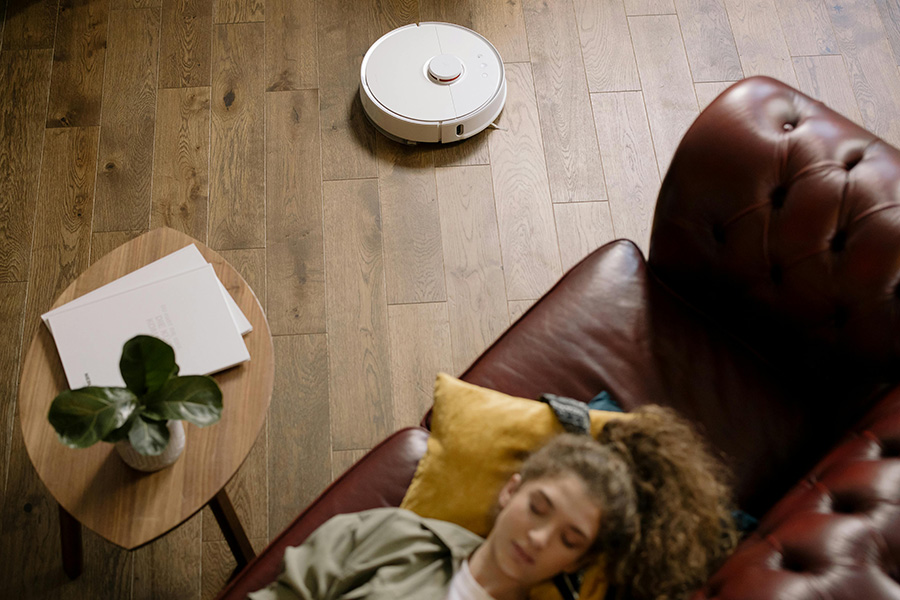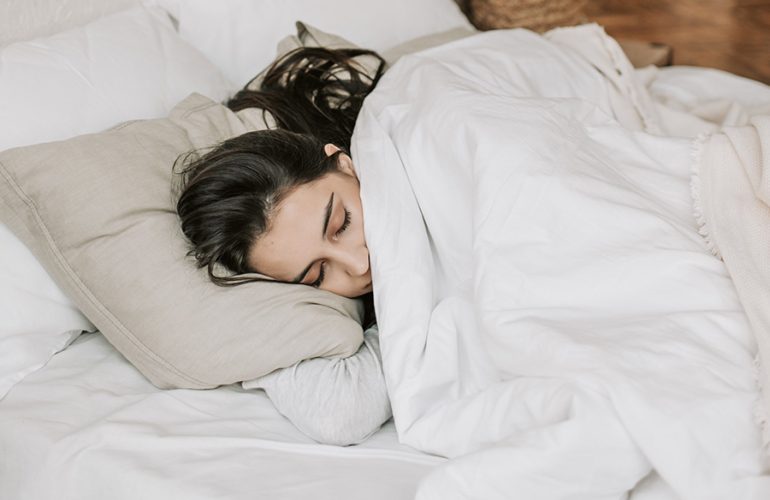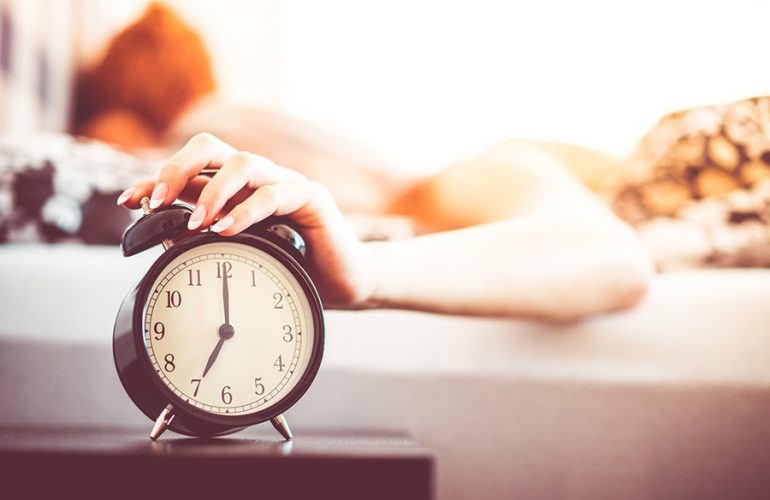For many people, achieving a restful night’s sleep is an ongoing challenge. The sounds of urban life, inconsiderate neighbors, or even internal stress can disturb our sleep patterns, leading to fragmented, less restorative rest. We sometimes recommend white noise as an effective and simple tool to improve sleep quality. White noise can create a soothing environment, mask disruptive sounds, and encourage deeper, more consistent sleep.
In this article, we’ll explore what white noise is, how it works, and why it can be a valuable tool for improving sleep.
What Is White Noise?
White noise is a consistent sound that contains all the audible frequencies at equal intensity. It’s often compared to the sound of a constant hum, like that of a fan, air conditioner, or television static. This steady, unchanging noise can blend into the background, helping to mask sudden, disruptive sounds that might otherwise wake you up or make it harder to fall asleep.
While white noise is the most commonly referenced type, there are other colors of noise, such as pink noise and brown noise, that have different sound qualities. Pink noise, for example, is softer and more balanced, while brown noise is deeper, resembling the sound of thunder or a waterfall. These alternatives may also help with sleep, depending on personal preference.
How White Noise Improves Sleep
White noise works by creating a “blanket” of sound that helps mask environmental noises. These could be anything from a car honking outside to a creaky floorboard or even your partner’s snoring. The primary benefit of white noise is its ability to keep the brain from registering every small, unexpected noise as a disturbance.
Here’s how white noise helps in different stages of sleep:
Falling Asleep Faster
Many people struggle with falling asleep due to their environment. Whether it’s the sound of a dog barking or street noise outside your window, these disruptions can make it difficult to drift off. White noise helps by drowning out these noises, allowing the brain to focus on the consistent hum rather than the unpredictable disruptions.
White noise is particularly beneficial for people who live in noisy environments, such as city dwellers. By masking external sounds, it enables them to relax more quickly, reducing the time it takes to fall asleep.
Staying Asleep
Even once you’re asleep, sudden noises can jolt you awake, especially during lighter sleep stages. For example, a car alarm or even a neighbor’s door slamming can disrupt your sleep cycle, preventing you from reaching the deeper, more restorative stages of sleep. White noise creates a stable background sound that minimizes your brain’s response to these interruptions, making it less likely that external noises will wake you.
Promoting Deeper, More Restorative Sleep
For those who struggle with staying asleep through the night, white noise can be particularly effective. By masking sporadic disturbances, it allows the brain to remain in a calm, relaxed state, helping you stay in deeper stages of sleep for longer. These deeper stages, such as REM sleep and deep sleep, are crucial for mental and physical recovery, helping to restore energy levels and consolidate memory.
White Noise and Sleep Disorders
White noise is not only useful for general sleep improvement but can also be helpful for those suffering from sleep disorders. Here’s how it can assist with a few common issues:
Insomnia
For individuals dealing with insomnia, white noise can serve as part of a broader strategy to establish a relaxing sleep environment. Since insomnia sufferers often struggle with racing thoughts and hyperarousal at night, white noise can provide a soothing distraction, helping quiet the mind and make it easier to fall asleep. By blocking out the environmental stimuli that contribute to wakefulness, white noise allows the body to focus on rest.
Sleep Apnea and Snoring
While white noise doesn’t treat sleep apnea or snoring directly, it can benefit the sleep partners of those with these conditions. White noise can mask the sounds of snoring, helping the partner get better, less interrupted sleep. In some cases, the person with sleep apnea may also benefit from the calming effects of white noise, particularly if they experience anxiety or restlessness at night.
Tinnitus
People with tinnitus, a condition where one experiences constant ringing or buzzing in the ears, often find it difficult to sleep because the ringing becomes more noticeable in silence. White noise can help mask the ringing, making it easier for individuals with tinnitus to relax and fall asleep.
Using White Noise in Your Sleep Routine
Introducing white noise into your nightly routine is simple and can be tailored to your personal preferences.
White Noise Machines
White noise machines are a popular choice, offering a range of soundscapes from basic white noise to other options like rain or ocean sounds. These devices are compact, easy to use, and many come with volume controls and timers, allowing you to customize the sound to suit your environment.
Phone Apps
There are numerous white noise apps available for smartphones that provide similar soundscapes without the need for an additional device. Many apps allow you to create sound combinations or adjust the sound to suit your needs.
Fans or Household Devices
If you’re not keen on purchasing a white noise machine or using an app, everyday household items like fans, air purifiers, or even a radio set to static can generate white noise. These simple options can effectively create a consistent background sound to aid sleep.
Experimenting with Other Noise Colors
While white noise is effective for many, others might find they respond better to pink or brown noise, which offer slightly different sound profiles. Pink noise has been shown in some studies to promote deeper sleep by mimicking the natural rhythms of nature, such as rustling leaves or rain. Brown noise, with its deeper tones, can feel more comforting for those who prefer a lower-pitched sound. Experimenting with different sound types can help you find what works best for you.
White noise can be an invaluable tool for anyone struggling with sleep disturbances. By masking unwanted sounds, promoting relaxation, and supporting deeper sleep, it can create the ideal environment for restorative rest. Whether you live in a noisy city, have trouble falling asleep, or simply want to optimize your sleep quality, adding white noise to your bedtime routine may help you achieve the peaceful, uninterrupted sleep you’ve been seeking.
White noise is a great way to improve sleep, but if you are experiencing persistent sleep issues, please call Sweet Sleep Studio at (913) 309-5963. We are here and ready to help!




